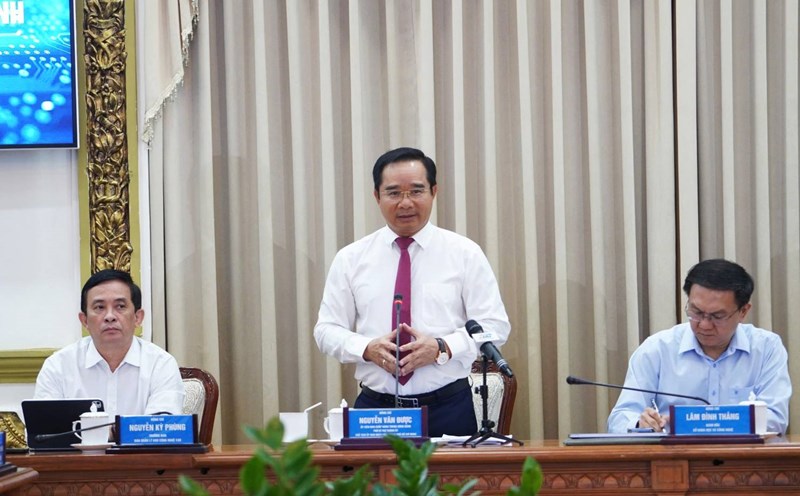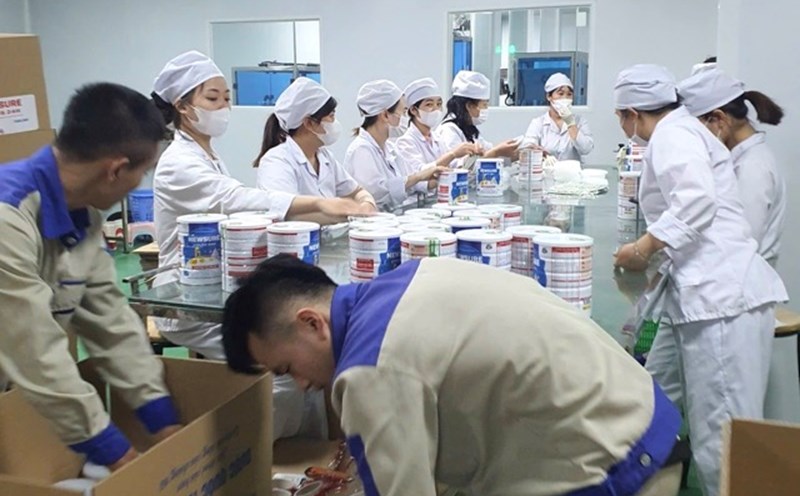The workshop aims to comprehensively assess the impacts and propose response scenarios to the newly announced global countervailing tax policy by the US. Of which, Vietnam is in the group of taxable up to 46%.
At the workshop, Chairman of the Ho Chi Minh City People's Committee Nguyen Van Duoc emphasized that Ho Chi Minh City is the economic locomotive of the country, so tax policy fluctuations from major trading partners such as the US will certainly directly affect the city's growth and development orientation in 2025.
Mr. Nguyen Van Duoc said that when a high import tax rate is applied, increased export costs will reduce the competitiveness of Vietnamese goods, greatly affecting production and trade activities - especially in the context of Ho Chi Minh City having a very large import-export turnover with the US.
In addition, Ho Chi Minh City also depends on imported raw materials from the US for production.
How will the US countervailing tax policy affect the citys economy? What is the city's ability to achieve growth targets? We hope to listen to opinions, analysis and specific proposals to build response scenarios, helping the city overcome difficulties and continue to develop" - Mr. Nguyen Van Duoc said.
Dr. Truong Minh Huy Vu - Director of the Ho Chi Minh City Institute for Development Studies, said that although it is too early to make a solid forecast because tax policies still depend on the upcoming negotiation process, experts have initially built three growth scenarios based on the US tax rate that can be applied.
If the US imposes a 46% tax rate, Ho Chi Minh City's economic growth in 2025 is expected to reach only 4.63% to 5.75%.
If the tax is reduced to 25%, Ho Chi Minh City can grow from 6.23% to 7.35%.
In the most optimistic scenario, if the tax is only 15%, growth can reach 7.37% to 8.49%.
Previously, Ho Chi Minh City set a growth target of over 10% in 2025.
However, high tax rates risk disrupting this plan, especially in the context of the US being Ho Chi Minh City's main export market with goods such as electricity - electronics, textiles, footwear, woodwork, etc.
According to 2024 data, Ho Chi Minh City exports to the US will reach 7.8 billion USD, imports will reach about 3 billion USD, creating a trade surplus of up to 4.8 billion USD. Therefore, any changes in trade relations will greatly affect the city's economic balance.
Mr. Truong Minh Huy Vu also warned that the new tax policy could reduce foreign direct investment (FDI) flowing into Vietnam, because businesses will reconsider profits when export costs increase.
Mr. Vu proposed 7 groups of solutions to promote growth including: import-export, public investment, consumption, public spending, market stabilization, administrative reform, promoting social security projects, promoting new momentum, economic diplomacy, etc.











